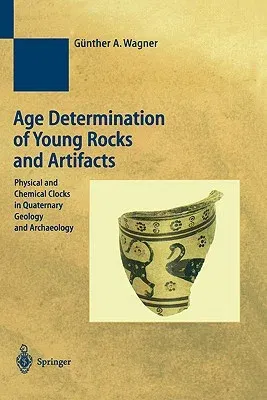Günther a Wagner
(Author)Age Determination of Young Rocks and Artifacts: Physical and Chemical Clocks in Quaternary Geology and Archaeology (1998)Hardcover - 1998, 16 April 1998

Qty
1
Turbo
Ships in 2 - 3 days
In Stock
Free Delivery
Cash on Delivery
15 Days
Free Returns
Secure Checkout

Part of Series
Natural Science in Archaeology
Print Length
466 pages
Language
English
Publisher
Springer
Date Published
16 Apr 1998
ISBN-10
3540634363
ISBN-13
9783540634362
Description
Product Details
Author:
Book Edition:
1998
Book Format:
Hardcover
Country of Origin:
DE
Date Published:
16 April 1998
Dimensions:
24.23 x
16.18 x
2.31 cm
ISBN-10:
3540634363
ISBN-13:
9783540634362
Language:
English
Location:
Berlin, Heidelberg
Pages:
466
Publisher:
Weight:
802.86 gm